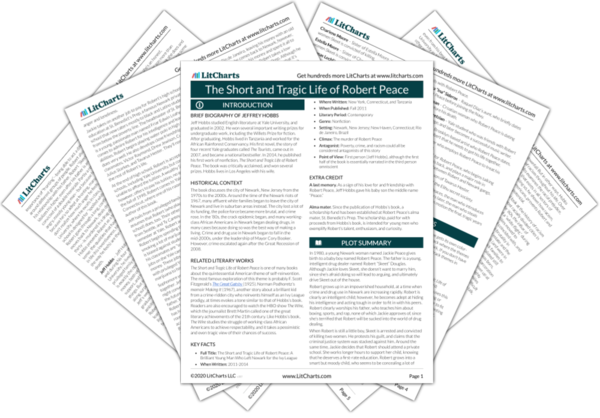The students are assigned their summer reading, including two books—Mark Twain’s
Adventures of Huckleberry Finn and William Faulkner’s
A Light in August—that
Robert has already read for fun. However, Robert acquires a reputation for knowing complicated rap lyrics—“a feat that inspired awe in the freshman class.”
